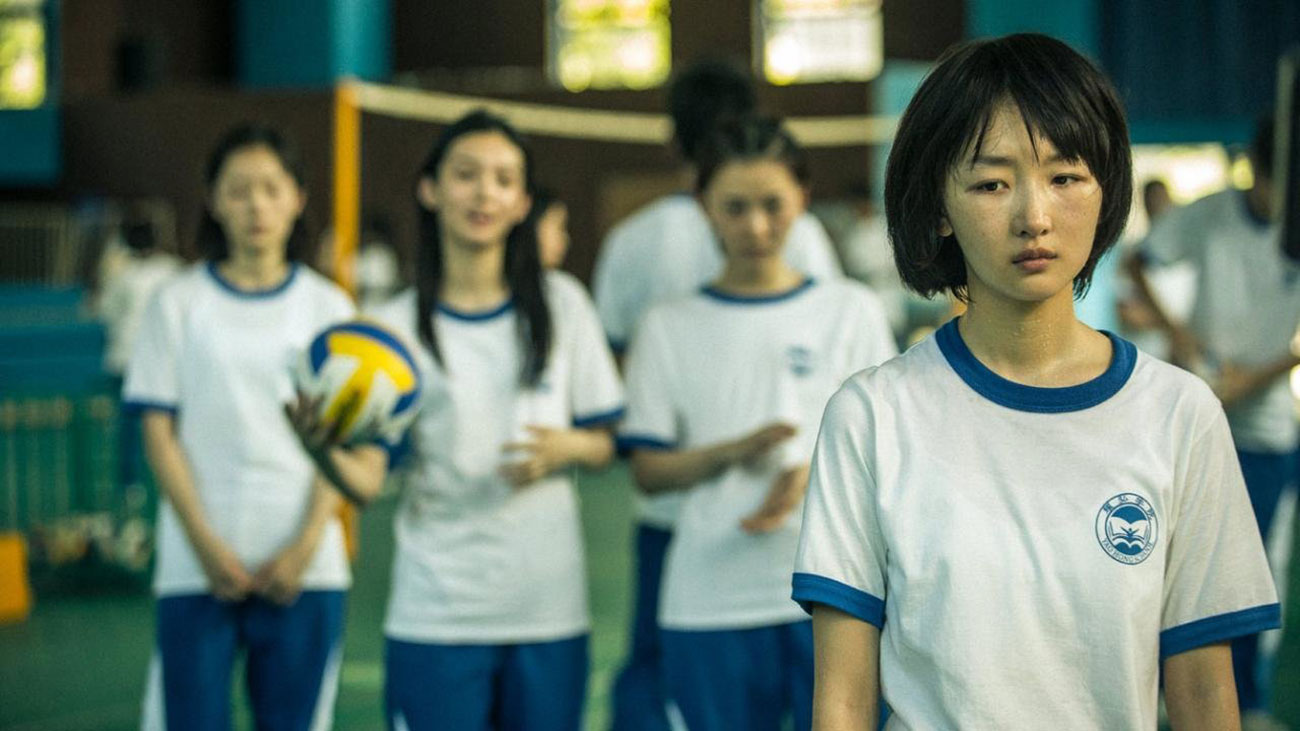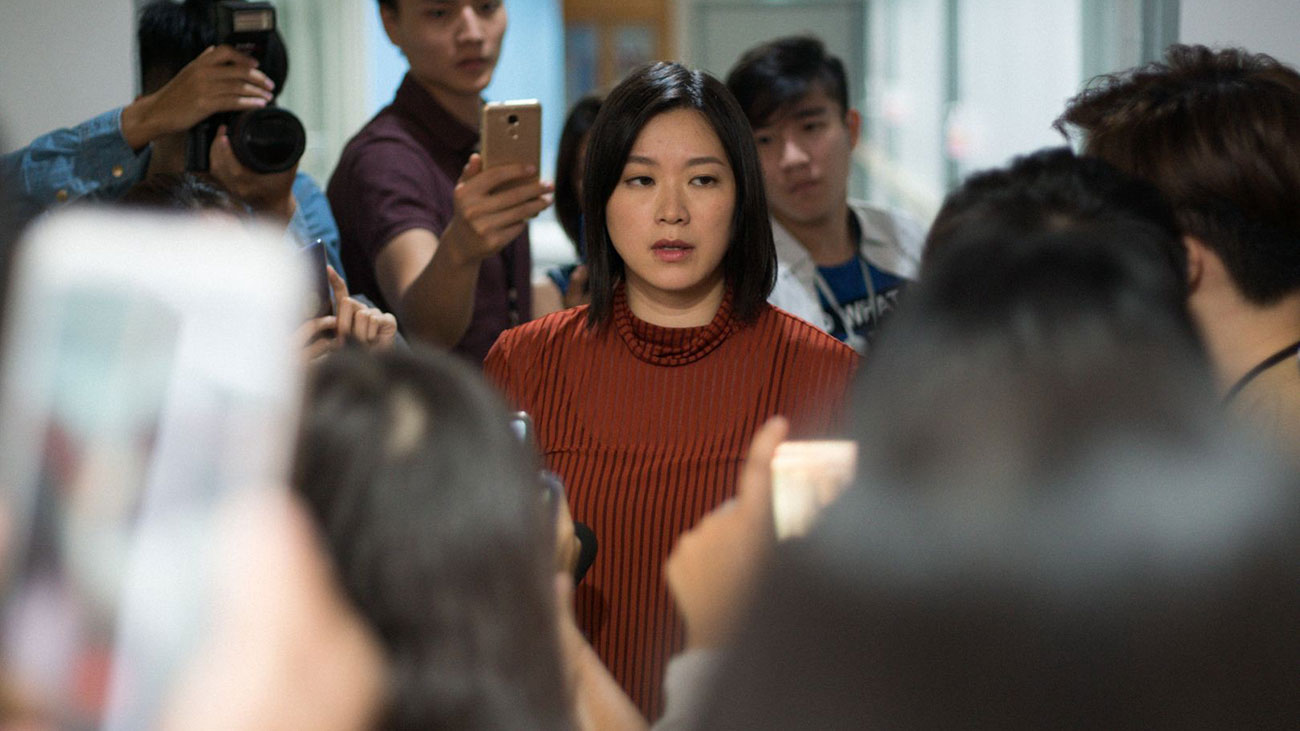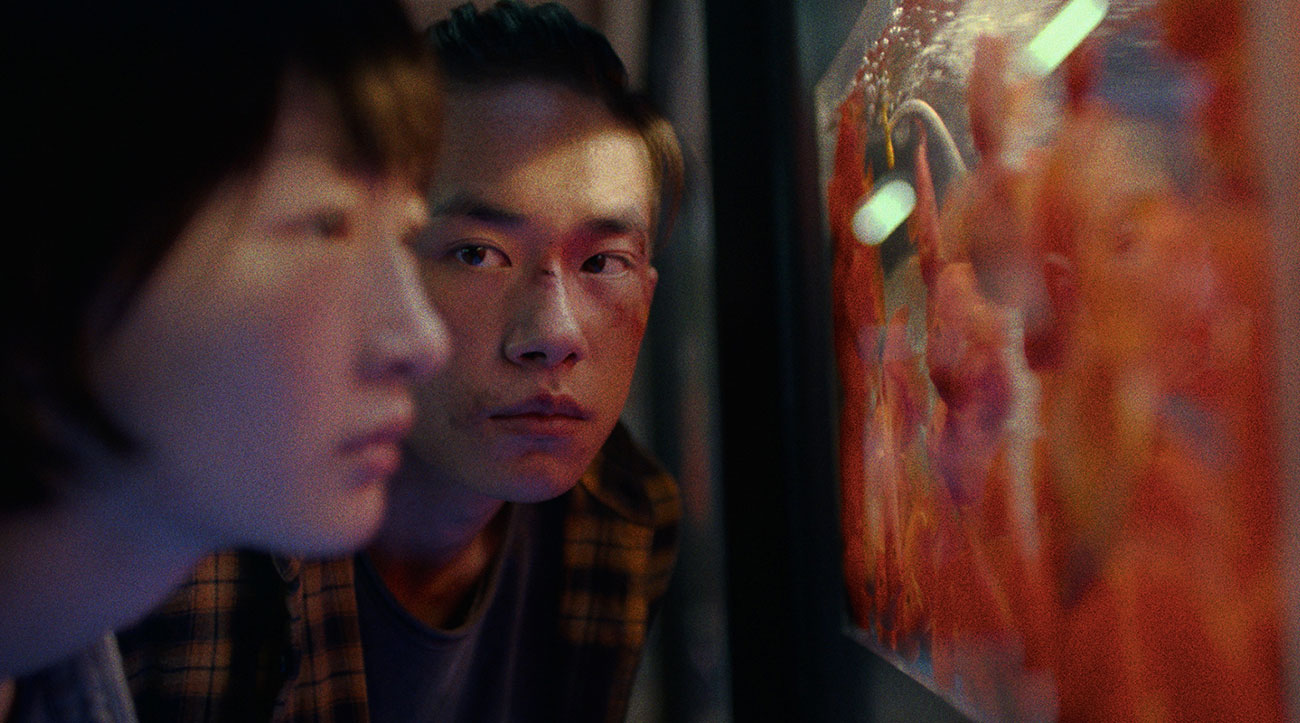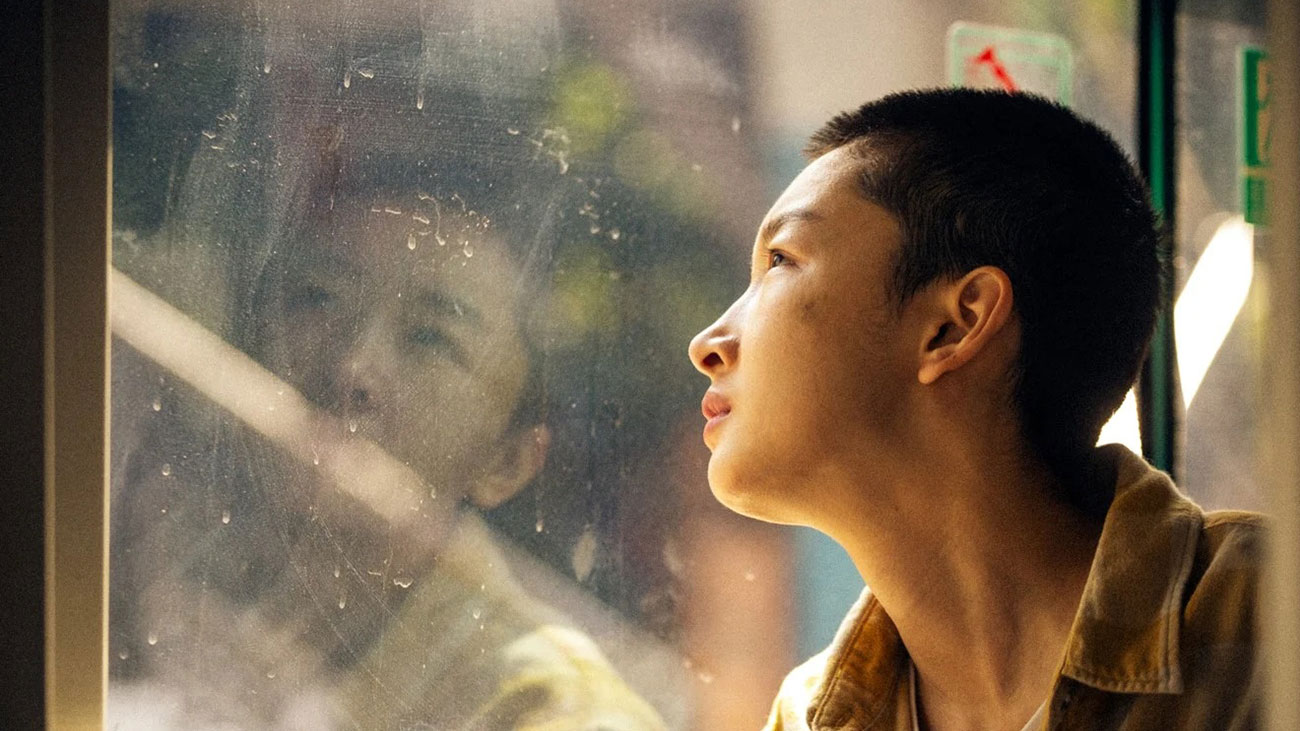Spoilers for Better Days and Victim(s) are included in this feature. CW: sexual assault and suicide.
This year’s edition of the Far East Film Festival in Udine, Italy saw two Chinese-language films take home the festival’s top prizes: Better Days (Golden and Black Mulberry Awards) and Victim(s) (Silver Mulberry Award). Coincidentally, both films tackle youth issues such as school bullying, the multi-layered nature of campus violence, and its impact in the long term.
Better Days is directed by Hong Kong filmmaker Derek Tsang and is an adaptation of the novel The Youthful You Who Was So Beautiful, written by Jiu Yuexi. Tsang’s feature follows Chen Nian’s (Zhou Dong Yu) journey through high school to leave Anqiao City, an experience filled with extreme bullying, and her encounter with Xiao Bei (Jackson Yee), a small-time criminal who becomes her protector.
Victim(s) is Layla Zhuqing Ji’s debut feature-length film and is based on real events. The film recounts the events leading to the death of Gangzi (Kahoe Hon) and all accusations pointing to his classmate Chen (Xianjun Fu).
Better Days unfolds in chronological fashion and follows the countdown to the Gaokao (National College Entrance Exam in China), known for its heavy pressure on students, with the outcome of the exam being key to their university education. Victim(s) differs in its structure and is split into different chapters focused on various events and perspectives. Another main difference is the point of view from which the story is told. Better Days is told through the eyes of Chen Nian, the main character, while Victim(s) takes another direction as its main story is told through Chen and Gangzi’s mothers: Mei (Huang Lu) and Gu (Remon Lim).
While academic pressure is a recurring theme in both films, it is much more pronounced in Better Days, as both the school and Chen Nian’s focus revolve heavily around the Gaokao. In Victim(s), its themes speak universally, focusing on the characters’ backgrounds and their socioeconomic differences in a school environment. In both films, we get a picture of students and their complex relationships. More than being defined by the pressure of exams and school rankings, we see the issues that they face such as parental communication, discrimination and the need for human connection.

The Bullied and the Bullies
The death of a student is the catalyst of both stories. Better Days begins with Hu Xiaodie’s (Zhang Yifan) suicide in the middle of the school courtyard after jumping over the guardrail, and Victim(s) starts with Gangzi dying in the middle of a road on a rainy night and his two friends left severely injured further down the city.
A few moments after Hu Xiaodie’s suicide in Better Days, Chen Nian is the only student to come forward and cover her face as a sign of respect, protecting her from all the phone cameras pointed at her body in the middle of the courtyard. Chen Nian’s gesture looks like a sign of protest in the eyes of Hu Xiaodie’s bullies, lead by Wei Lai (Zhou Ye), and it goes from bad to worse when Chen Nian and another student open up about this issue to the police.
In response to the bullies, police officer Zheng Yi (Yin Fang) makes a grim comparison between the bullying ringleader Wei Lai and “wild animals before they’re killed”, saying that they have no expression in their eyes because they are afraid. As the film progresses, the audience realises Wei Lai is perhaps not as ominous as her first appearance would have one believe as it is revealed that her attitude has been shaped by a difficult relationship with her wealthy parents whose high standards of her and the company she keeps place immense pressure on the teenager.
Conversely, Victim(s) presents a complex picture for the audience to focus on. It is not a specific event that is at the root of the bullying, but a variety of discriminatory factors like social class, student rankings, and sexual orientation, which demonstrate how Chen became a target for Gangzi and his gang.
By telling this story through the eyes of the two mothers, Victim(s) allows insight into how Chen and Gangzi’s personalities were shaped. A surprising scene shows Chen telling his mother that “The dead always receive more flowers than the living” while they are near Gangzi’s grave. It is a moment that will prove to be telling about his experience and a prompt for the audience to look beyond the surface.

The Thin Line Between Bystanders and Bullies
It is easier to be part of those tolerated, rather than to be an outcast, but this mindset allows bullies to continue thriving and impose their reign of terror. In both films, the audience often sees students feigning ignorance over the atrocities going on in front of them. Most remain unwavering even in the face of police questioning. Because of their own prejudices, they feed the police with half-truths and rumours. By not allowing the truth to come out, systemic violence is allowed to continue.
This violence often takes the form of insults, rumours, threats and physical confrontations, all of which are documented by abusers and shared online. Though it is unclear whether such scenes are depicted as having a viral impact within either story, what is made clear are students’ reactions to this content which is privately circulated through social media or group chats. Not every student agrees with the behaviour they see in either film yet they fail to publicly condone it, perhaps out of fear that they will be targeted next.
Such is the case of Better Days’ Xu Miao (Zhang Xinyi), a bullied student who is blackmailed and coerced into assisting the bully, Wei Lai, by luring Chen Nian. Something similar also happens for Chen in Victim(s). Scared that Gangzi’s gang would share a video of himself following any instruction given by Gangzi, he becomes an accomplice to Xu Qianmo’s (Wilson Hsu) rape by leading her to the three boys. Both events are decisive betrayals in the story of the protagonists.
During Chen’s custody for the murder of Gangzi and attempted murder of two other boys, he receives many death threats and letters from his classmates encouraging him to commit suicide. This is a very tough moment for Chen: not only did nobody help him while he was being harassed, but other students went from being passive bystanders to active accomplices in sending those letters.
In such situations, one would typically think that adults — who are supposed to be older, smarter and more responsible — would put an end to this environment.

Distrust In Adults and Authority
The two stories show a wide gap between childhood and the world of adults and in both films, the young protagonists feel misunderstood by the adults around them. Victim(s) shows a conversation between Chen and his mum who tells him, “It’s adulthood. You wouldn’t understand, being a child is nice,” while he mostly knows his childhood to be deeply brutal. In Better Days, Chen Nian does her best to move to Beijing in the hope of saving herself and improving her mum’s quality of life, but this responsibility should not be hers.
Given both scenarios, this begs the question: who is at fault for young people’s general distrust of adults? Better Days makes the case that schools are at fault for teenagers’ difficulty communicating with adults, especially in some Asian countries where many high school students eventually live on campus. In Tsang’s film, we see a school that cares more about the academic success of their students than their overall well-being. The day after Hu Xiaodie’s suicide, the school adds fences to the guardrails, and while the homeroom teacher believes this change will prevent more suicides, it is simply a temporary band-aid over the root of the problem.
By not succeeding in making schools a safe space for kids to grow without worries, adults fail at providing a supportive environment. Their lack of responsibility in setting an example and giving guidance tells kids that they are expected to figure everything out by themselves, and leaves them thinking that is how things should be. Officer Zheng Yi who is handling Chen Nian’s case even says, “Growing up is like diving” which to her sounds as though any problems she has must be tackled head on, no matter how unfair or serious the issue is.
Meanwhile, Victim(s) looks closely at the other major adult presence in young people’s lives: their parents. Without disregarding their passive role while most of the violence was taking place, Victim(s) explores the active role of the mothers of both the bullied and the bullies in shaping the way they are. It observes how involved parents are in their child’s education, their level of affection and of course their ignorance on certain topics. Gangzi’s mum, Gu, is a good example of this. With a violent partner and difficult finances, she tries to make do as best she can while giving some time and attention to her son. However, while she’s aware of Gangzi’s mediocre grades and mentions it here and there in Gangzi’s absence, she doesn’t ask him about those, just like she doesn’t ask about other matters that could hint to Gangzi’s malaise. For Gangzi, there might be some hidden hope when he asks his mum why she’s staying with his dad – without this violent presence, home could feel a safer place for Gangzi to voice his worries and feelings. Ignoring those signs might be easier for Gu in the short-term, but they all blend into a bleak bigger picture.
We also see the shifting dynamic between parents Mei and Gu, who at the start of Victim(s) are at odds with each other in defence of their respective child but throughout the process begin to form an understanding over the circumstances that lead to their children’s actions. From this kind of solidarity is the hope that they can both move forward, learn from their mistakes and make up for their shortcomings as parents.
With all this in mind, it’s perhaps no wonder why the kids of Better Days and Victim(s) prefer to find comfort and guidance from other teenagers worthy of their trust. This is best summed up in Better Days by a police officer who asks his fellow officer, “If you try talking to the principal, he will pass it onto the teachers. If you try talking to the teacher, he’ll pass it onto the parents. Then the parents will say ‘I only see my kid once a year’. Who else is left?”

The Importance of Trusting Relationships
Because many of the people around them are passive onlookers, both protagonists find it hard to trust others. Chen Nian affirms this when she tells her teachers and the police that “You don’t need friends here”. Still, both Chen Nian and Chen let Xiao Bei and Xu Qianmo into their lives, befriending each other and trying to pull through together, towards a brighter future.
Each duo has its own shelter. For Victim(s)’ Xu Qianmo and Chen, it is the rooftop of the school and for Better Days’ Chen Nian and Xiao Bei, it is the latter’s home. These places are hosts to moments when they are comfortable enough to confide in each other. It is where Xu Qianmo confesses to Chen a harsh reality (“I think about death, everyday, hundreds of times,” she reveals) but also where the characters’ narrative changes, contemplating a brighter tomorrow (“There must be a way to get away from this together, we’ll walk proudly in broad daylight for the world to see”, says Xiao Bei to Chen Nian).
There is a deep sadness when in Victim(s), Chen and Xu Qianmo relate their own experiences to The Emperor’s New Clothes, the classic Danish folktale about an emperor who is fed lies about his new clothes by his subjects out of fear of what the truth might signal to him and others. In the film, Chen and Xu Qianmo have their doubts as to who they can trust; if students were to tell the truth, they could put themselves in trouble with bullies always ready to target someone new.
Both Chen Nian and Chen have guilt surrounding their confidants. Chen Nian confesses to Xiao Bei and tells him that she chose to ignore Hu Xiaodie when she could have befriended and defended her. Her guilt makes her feel as though she is unworthy of Xiao Bei’s kindness. Chen’s regret is that he led Xu Qianmo to Gangzi, putting her at an impasse. Both situations come with severe consequences.
Both pairs of teenagers come together to reveal and discover new sides to them. They are also allowed to be people outside of being students. But even though they find in each other a person they can trust and with whom they can hope for a better life, they are still teenagers with a long road ahead of them.

Although neither film offers a resolute answer as to what can be done to create a safe learning and social environment for young people in and outside of the classroom (especially in the age of social media), Better Days and Victim(s) succeed in prompting the audience to consider what we don’t say in the face of violence, while shedding light on the value of meaningful relationships.
It must be noted that the kind of bullying depicted in both films is fairly extreme and in reality, subtler microaggressions – such as those experienced by the children in The World of Us (2016, dir. Yoon Ga-Eun) – are perhaps more commonplace in a school setting. Nonetheless, Ji and Tsang’s films present complex takes on a subject matter that is yet to be approached in an effective way. Even with recent laws and authority figures attempting to regulate this issue, particularly within a Chinese context, the root of the problem is always too subtle and human, and has to be dealt with on a micro level.
Perhaps there is something further that can be gleaned from the international reception towards Better Days and Victim(s). Both films are difficult but necessary, and have arrived during a year of great tumult and unrest. In many ways, their tonality reflects the mood of the times we’re currently living in, and the sense of hopeful endings that Li and Tsang have afforded in their films is something we want to hold onto.
